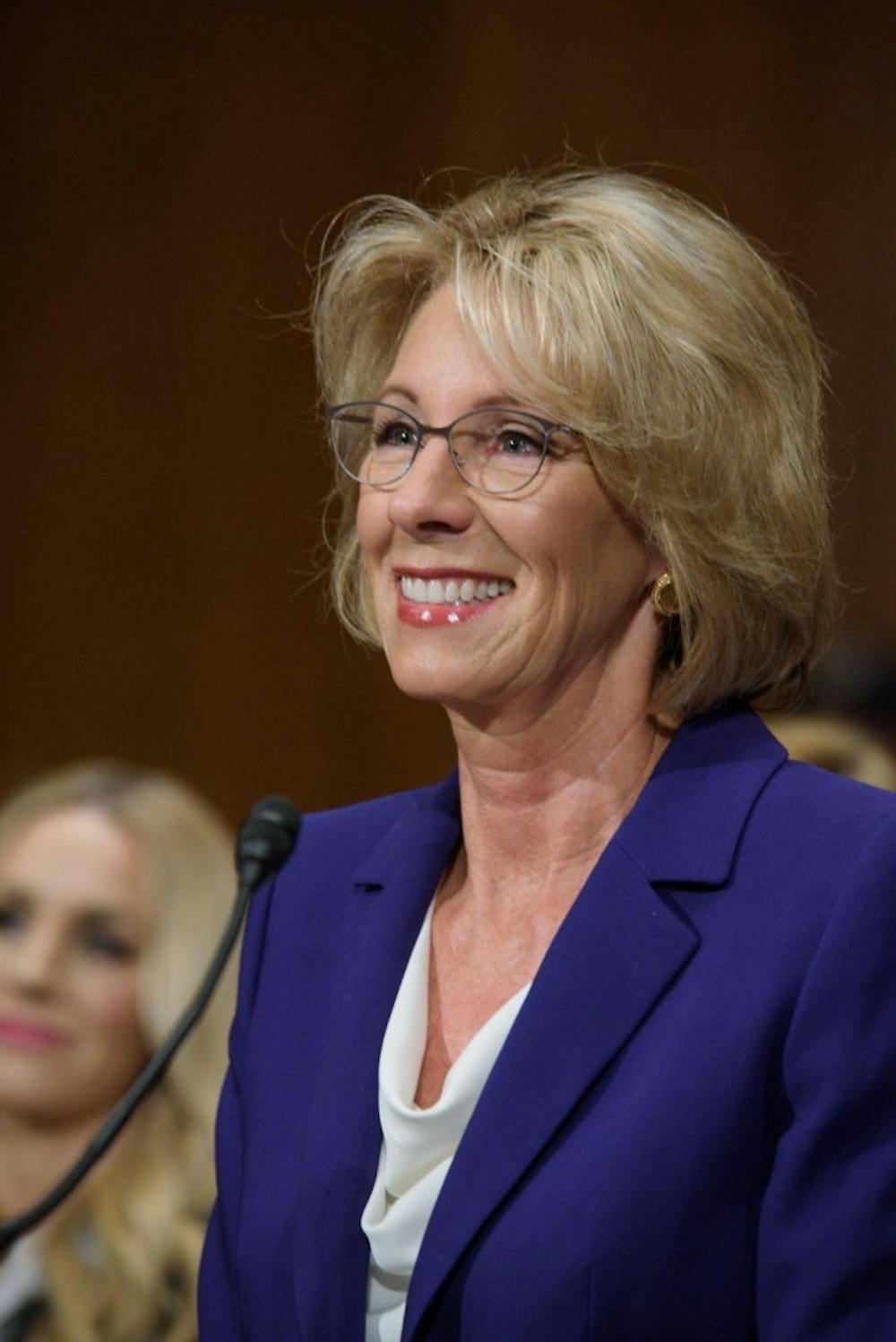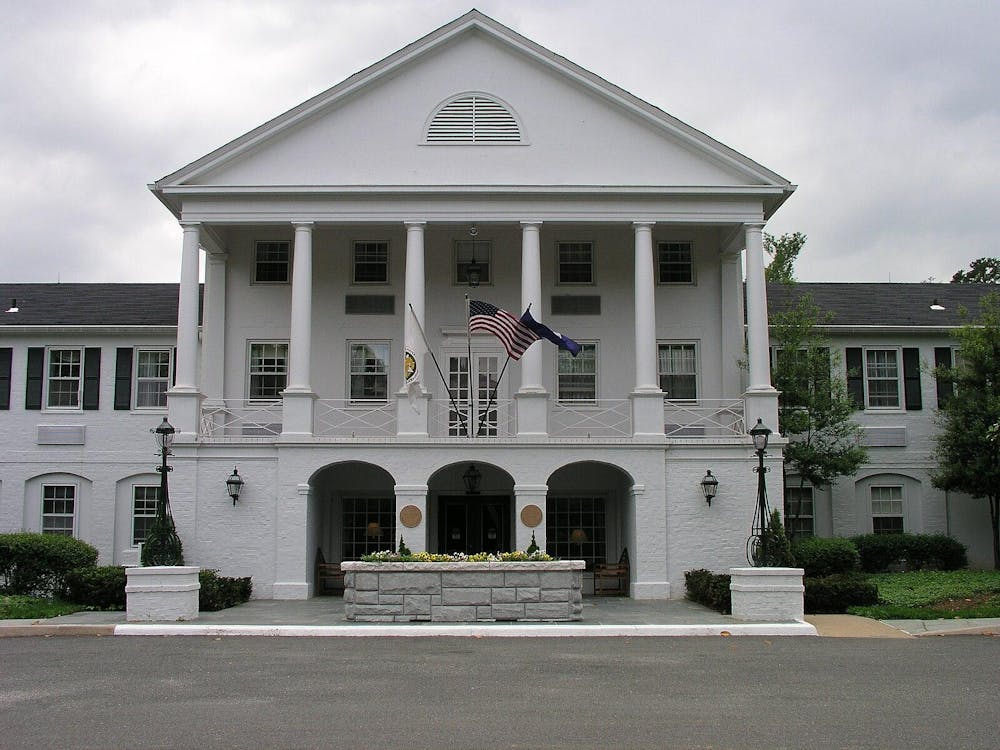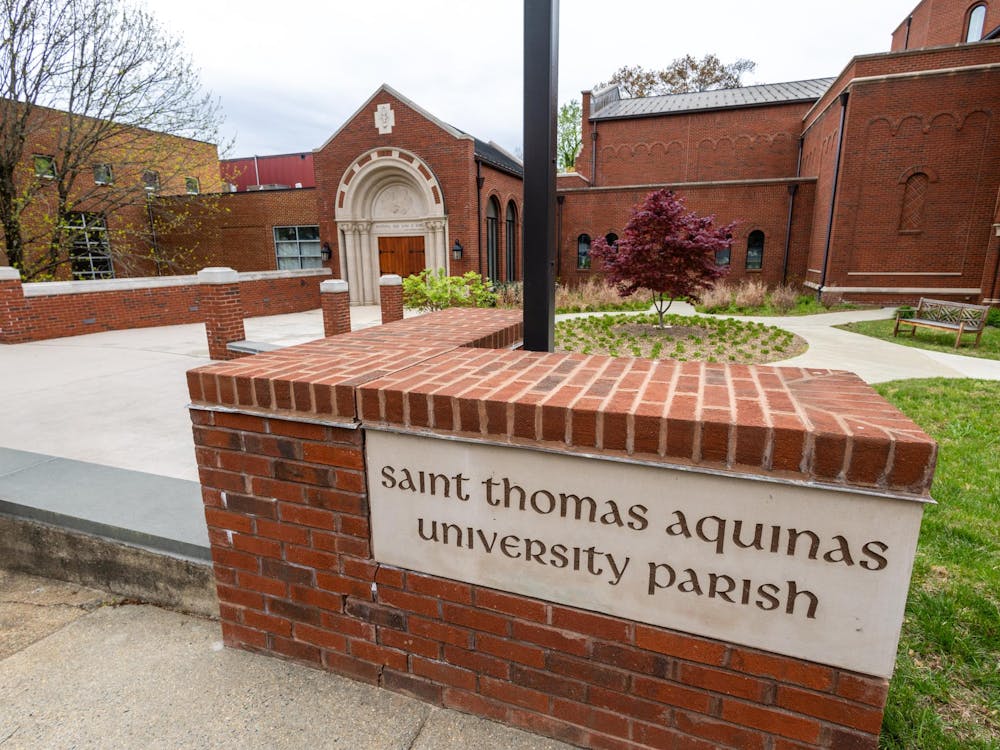Secretary of Education nominee Betsy DeVos has revealed little about her policies regarding higher education during her confirmation hearings, and several University members have weighed on the potential implications of her nomination.
DeVos is a Republican bussinesswoman and education activist known for her support of charter and voucher schools. However, she has also been criticized for her lack of experience in the field of education.
President Donald Trump nominated DeVos for the Department of Education role following the general election in late November. In a confirmation hearing Jan. 17, DeVos appeared before the U.S. Senate Committee on Health, Education, Labor and Pensions to answer questions regarding her stance on federal roles in education.
Sen. Tim Kaine, who questioned DeVos during the confirmation hearing, issued a press release Jan. 25 opposing her nomination. Sen. Mark Warner has not yet publicly stated whether he supports or opposes DeVos for the position of secretary of education.
DeVos refused to positively commit to upholding a Title IX directive which was established under the Obama administration in 2011. It prohibits sexual discrimination on college campuses while establishing school procedures for claims of sexual assault or harassment.
In the past, DeVos has made donations to the Foundation for Individual Rights in Education, which frequently defends college students accused of sexual assault through Title IX on the grounds of due process violations.
When prompted at the confirmation hearing if she would uphold the Title IX directive, DeVos said it was premature for her to do so.
“I look forward to understanding the past actions and the current administration better, and to ensuring that the intent of the law is actually carried out in a way that recognizes both the victim, the rights of the victim, as well as those who are accused,” DeVos said.
Curry School of Education Dean Robert Pianta said Title IX is a complicated directive which has come under close scrutiny in the past five years and been criticized as unclear and overreaching in certain circles.
“Colleges had a hard time interpreting what the Title IX guidelines were and it took some time to settle these things out,” Pianta said. “I think generally that if you look at the arc of what has happened around Title IX — I think that has been a positive move for colleges and universities, but it’s a very gray area.”
Pianta said he believes some of DeVos’ suggested reforms are promising, although he said he finds her lack of knowledge about college and university policy concerning.
“On the higher education side it seems like [DeVos] knows very very little about the role of the federal government and this is kind of troubling,” Pianta said.
Regardless, DeVos’ stance on education policy tends to favor states’ control of funding and decision making, Pianta said. He said he anticipates DeVos will either change or retract parts of the Title IX directive.
“We haven’t really nailed this down yet and I would expect [DeVos] is going to push back on that considerably,” Pianta said.
Second-year College student Adam Kimelman, vice chair of campaigns for the College Republicans, said he personally supports DeVos’s nomination, especially due to her support of school choice. College Republicans as an organization does not typically endorse cabinet nominees.
Kimelman said that although DeVos hasn’t yet made clear her policies on higher education, he believes she will show the same commitment to school success and accountability as she has with K-12 policy.
“Higher education hasn't been as hot a topic for her,” Kimelman said. “I think she will still bring the same dedication to allowing every student to reach their full potential in higher education though.”
Kimelman said he hopes DeVos will support existing Title IX policies for colleges and universities, which prohibit sexual discrimination and encourage gender equality.
Third-year College student Hannah Mezzacappa, policy chair for the university organization One Less, said she believes Title IX is an invaluable resource for survivors of sexual violence at colleges and universities.
“Adjudicating sexual assault cases — especially on college campuses — can be incredibly complicated, but that doesn't mean it shouldn't happen,” Mezzacappa said. “In a sexual assault case, often times there can be conflicted stories and a university has to deal with those complexities. Title IX is a way to ensure that in those kinds of cases the survivor is being protected.”
Though some changes might be warranted, Title IX exists to support sexual assault survivors and it should be continued, Mezzacappa added.
University Democrats President Brett Curtis said the organization is vehemently against the nomination of DeVos.
“U.Va. is one of many institutions that has had too many experiences with these horrific concerns, so an individual with such insufficient credentials on sexual assault and discrimination is troubling at best for our students,” Curtis said in an email to The Cavalier Daily.
Curtis said he believes DeVos is unqualified for managing several higher education concerns, including loan granting and college affordability. DeVos threatens students’ access to a high-quality education, he added.
Supporters of DeVos, however, maintain she is dedicated to all students, regardless of background.
“Betsy DeVos is committed to ensuring that all students have a safe environment to learn, grow and thrive. She has a proven track record of being committed to strong public schools,” Devos aide Greg McNeilly said in an email statement.
The U.S. Senate Committee on Health, Education, Labor and Pensions will vote on DeVos confirmation Jan. 31.







